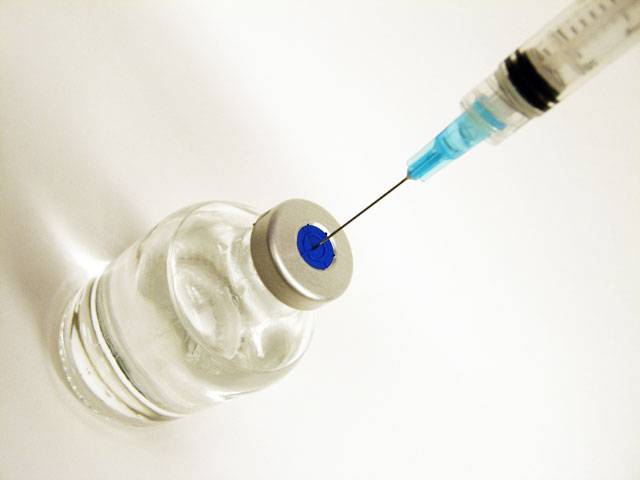MADRID - A team of Spanish researchers say they have developed a therapeutic vaccine that can temporarily brake growth of the HIV virus in infected patients. The vaccine, based on immune cells exposed to HIV that had been inactivated with heat, was tested on a group of 36 people carrying the virus and the results were the best yet recorded for such a treatment, the team said. “What we did was give instructions to the immune system so it could learn to destroy the virus, which it does not do naturally,” said Felipe Garcia, one of the scientists in the team at Barcelona University’s Hospital Clinic.
The therapeutic vaccine, a shot that treats an existing disease rather than preventing it, was safe and led to a dramatic drop in the amount of HIV virus detected in some patients, said the study, published Wednesday in Science Translation Medicine.
After 12 weeks of the trial, the HIV viral load dropped by more than 90 percent among 12 of the 22 patients who received the vaccine. Only one among the 11 patients who received a control injection without the vaccine experienced a similar result.
After 24 weeks, the effectiveness had begun to decline, however, with seven of the 20 remaining patients receiving the vaccine enjoying a similar 90-percent slump in viral load. No-one in the control group of 10 patients experienced such a decline in the virus.
The vaccine lost its effectiveness after a year, when the patients had to return to their regular combination therapy of anti-retroviral drugs.
Researchers said the results were similar to those achieved with a single anti-retroviral drug, used to block the growth of HIV.
Saturday, April 20, 2024
Vaccine temporarily brakes HIV

Another westerly wave to enter in Balochistan on April 25
12:39 PM | April 20, 2024
Volcanic eruptions in Indonesia affect thousands of passengers
10:30 AM | April 20, 2024
Freedom Flotilla prepares for humanitarian aid delivery to Gaza
9:14 AM | April 20, 2024
Health activists for ban on small cigarette packs
April 20, 2024
Flower show attracts students in Agri University
April 20, 2024
Policitising Tragedy
April 20, 2024
Tehran to Rafah
April 20, 2024
A New Leaf
April 20, 2024
A Tense Neighbourhood
April 19, 2024
Dubai Underwater
April 19, 2024
Dangers of Deepfakes
April 20, 2024
Feudalism
April 20, 2024
Kite tragedy
April 19, 2024
Discipline dilemma
April 19, 2024
Urgent plea
April 19, 2024
ePaper - Nawaiwaqt
Advertisement
Nawaiwaqt Group | Copyright © 2024





